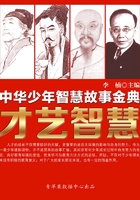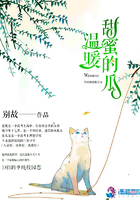These migrations into the inland valleys of the Old South mark the first great westward thrust of the American frontier. Thus the beginnings of the westward movement disclose to us a feature characteristic also of the later migrations which flung the frontier over the Appalachians, across the Mississippi, and finally to the shores of the Pacific. The pioneers, instead of moving westward by slow degrees, subduing the wilderness as they went, overleaped great spaces and planted themselves beyond, out of contact with the life they had left behind. Thus separated by hundreds of miles of intervening wilderness from the more civilized communities, the conquerors of the first American "West," prototypes of the conquerors of succeeding "Wests," inevitably struck out their own ways of life and developed their own customs. It would be difficult, indeed, to find anywhere a more remarkable contrast in contemporary folkways than that presented by the two great community groups of the South--the inland or piedmont settlements, called the Back Country, and the lowland towns and plantations along the seaboard.
The older society of the seaboard towns, as events were soon to prove, was not less independent in its ideals than the frontier society of the Back Country; but it was aristocratic in tone and feeling. Its leaders were the landed gentry--men of elegance, and not far behind their European contemporaries in the culture of the day. They were rich, without effort, both from their plantations, where black slaves and indentured servants labored, and from their coastwise and overseas trade. Their battles with forest and red man were long past. They had leisure for diversions such as the chase, the breeding and racing of thoroughbred horses, the dance, high play with dice and card, cockfighting, the gallantry of love, and the skill of the rapier.
Law and politics drew their soberer minds.
Very different were the conditions which confronted the pioneers in the first American "West." There every jewel of promise was ringed round with hostility. The cheap land the pioneer had purchased at a nominal price, or the free land he had taken by "tomahawk claim"--that is by cutting his name into the bark of a deadened tree, usually beside a spring--supported a forest of tall trunks and interlacing leafage. The long grass and weeds which covered the ground in a wealth of natural pasturage harbored the poisonous copperhead and the rattlesnake and, being shaded by the overhead foliage, they held the heavy dews and bred swarms of mosquitoes, gnats, and big flies which tortured both men and cattle. To protect the cattle and horses from the attacks of these pests the settlers were obliged to build large "smudges"--fires of green timber--against the wind. The animals soon learned to back up into the dense smoke and to move from one grazing spot to another as the wind changed. But useful as were the green timber fires that rolled their smoke on the wind to save the stock, they were at the same time a menace to the pioneer, for they proclaimed to roving bands of Cherokees that a further encroachment on their territory had been made by their most hated enemies--the men who felled the hunter's forest. Many an outpost pioneer who had made the long hard journey by sea and land from the old world of persecution to this new country of freedom, dropped from the red man's shot ere he had hewn the threshold of his home, leaving his wife and children to the unrecorded mercy of his slayer.
Those more fortunate pioneers who settled in groups won the first heat in the battle with the wilderness through massed effort under wariness. They made their clearings in the forest, built their cabins and stockades, and planted their cornfields, while lookouts kept watch and rifles were stacked within easy reach.
Every special task, such as a "raising," as cabin building was called, was undertaken by the community chiefly because the Indian danger necessitated swift building and made group action imperative. But the stanch heart is ever the glad heart. Nothing in this frontier history impresses us more than the joy of the pioneer at his labors. His determined optimism turned danger's dictation into an occasion for jollity. On the appointed day for the "raising," the neighbors would come, riding or afoot, to the newcomer's holding--the men with their rifles and axes, the women with their pots and kettles. Every child toddled along, too, helping to carry the wooden dishes and spoons. These free givers of labor had something of the Oriental's notion of the sacred ratification of friendship by a feast.
The usual dimensions of a cabin were sixteen by twenty feet. The timber for the building, having been already cut, lay at hand--logs of hickory, oak, young pine, walnut, or persimmon. To make the foundations, the men seized four of the thickest logs, laid them in place, and notched and grooved and hammered them into as close a clinch as if they had grown so. The wood must grip by its own substance alone to hold up the pioneer's dwelling, for there was not an iron nail to be had in the whole of the Back Country. Logs laid upon the foundation logs and notched into each other at the four corners formed the walls; and, when these stood at seven feet, the builders laid parallel timbers and puncheons to make both flooring and ceiling. The ridgepole of the roof was supported by two crotched trees and the roofing was made of logs and wooden slabs. The crevices of the walls were packed close with red clay and moss. Lastly, spaces for a door and windows were cut out. The door was made thick and heavy to withstand the Indian's rush. And the windowpanes? They were of paper treated with hog's fat or bear's grease.















